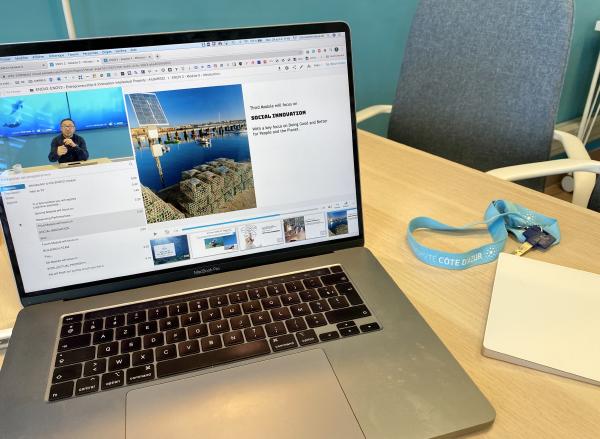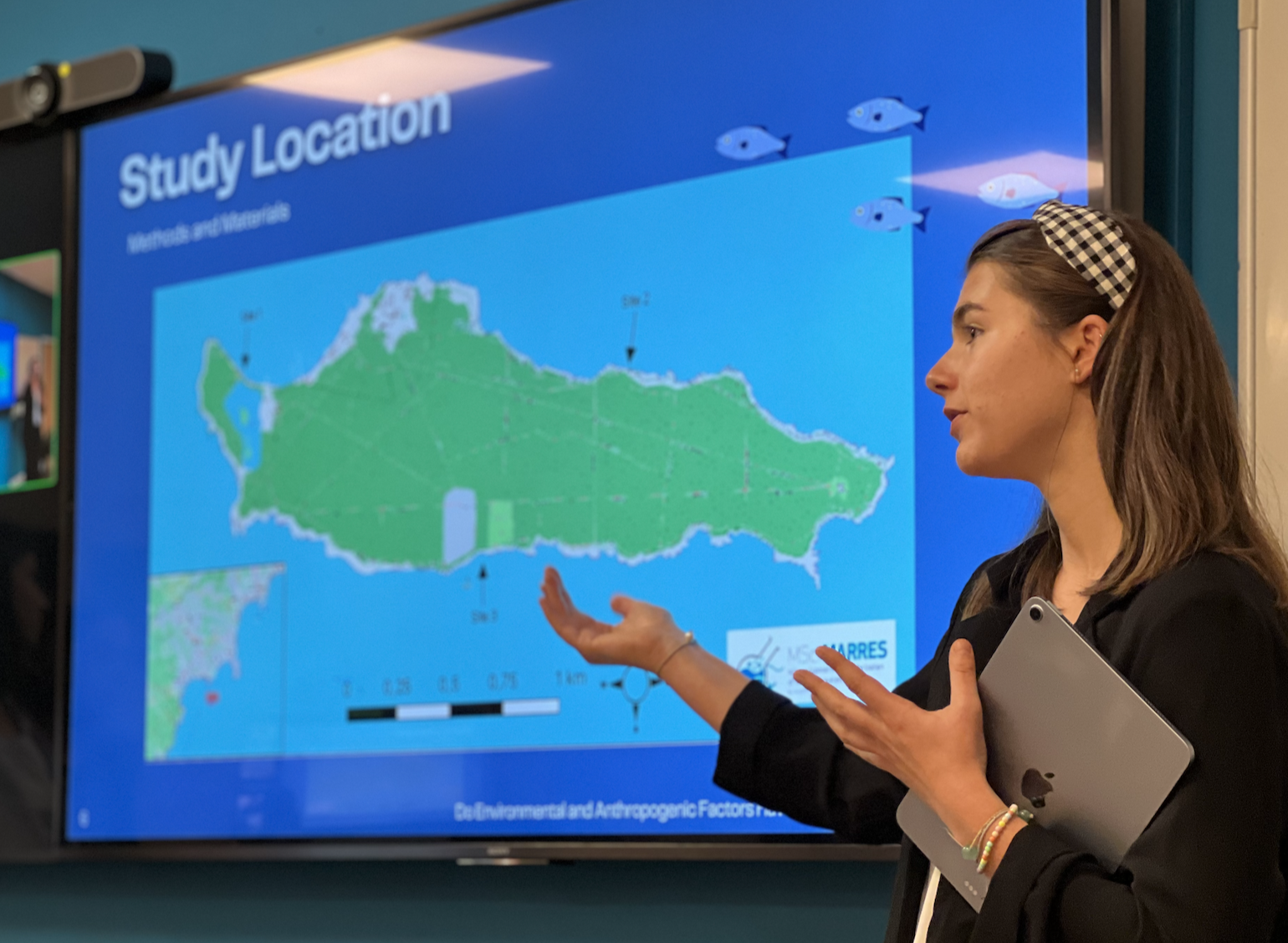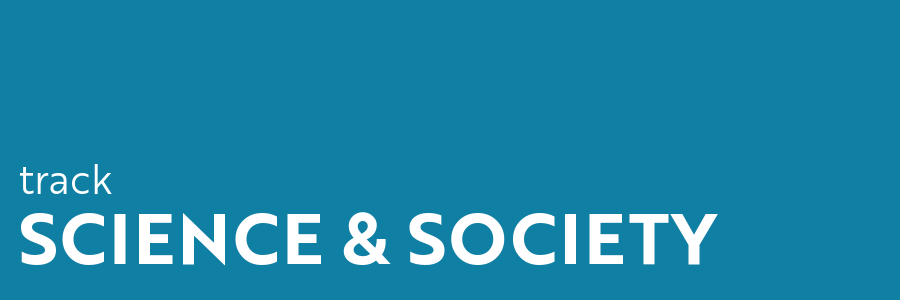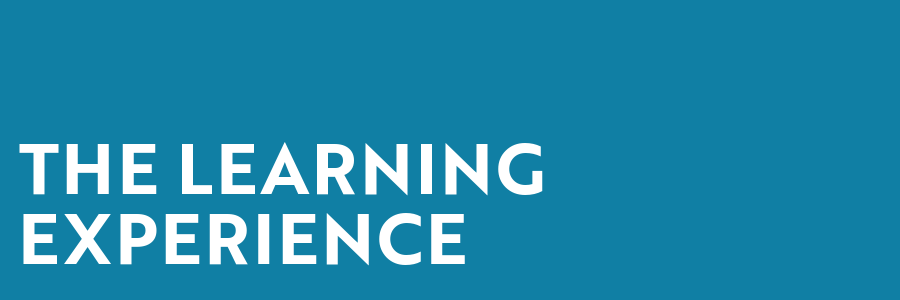MSc Ocean Science, Conservation & Innovation
Transition your career towards blue sustainable development
A one-year master program offering a unique opportunity to pivot towards an impactful Ocean career.
- Duration: 1 year (intake in September) - flexibility from onsite to fully online, part-time or full time
- Main objectives: Redirect your career toward conservation & human impact management or marine resource valorization
- Prerequesite: master or equivalent diploma in any discipline, or a 4-year bachelor.
THE PROGRAM
SCHEDULE
Starting in September, students acquire crucial knowledge and skills through common core modules covering ecology, sustainable development, law, and numerical tools. Following this foundation, they receive specialized training in managing marine conservation and human impact, or innovating with marine resources. This training occurs in very small groups to ensure personalized attention and deeper learning. Finally, students apply their new knowledge in a professional project, serving as a pivotal tool for launching their new career in the Ocean sector.

COMMON CORE MODULES
and
ECOLOGY OF CONSERVATION FOR BLUE MANAGERS
equips students with a set of tools in Information Systems (R, GIS), Personal Development (project management, career development, presentation coaching) and Social Science (citizen science, social surveys, indigenous & local knowledge, public communication, ethics).
ELECTIVE
or
OCEAN REMOTE SENSING & ARTIFICIAL INTELLIGENCE
Students select one module to acquire professional skills in environmental monitoring. They can explore environmental consultancy, covering marine ecological quality, EIA from various perspectives, and consulting practices. Or they can explore remote sensing and AI's role in ocean management, fisheries, aquaculture, and planning.
THE SPECIALIZATIONS
Blue Manager students are invited to choose one specialization, corresponding to 2 modules.
OUR HYBRID TEACHING STRATEGY
Our teaching modules are generally designed following a blended-learning approach articulated in learning blocks allowing students to prepare for their face-to-face interactions with instructors through prior asynchronous work.
generally composed of short video capsules, self-paced preparatory activities, and checkpoints for students to assess their learning progress.
reinforced and enriched by constructive exchanges in the form of recitation, workshops and discussions. Accessible onsite or online, recorded.


MORE ABOUT THE LEARNING STRATEGY instructors, campus tour, online tools...
YOUR PROFESSIONAL PROJECT

- During the first semester, you will prepare your professional project: this may involve searching for a new position, exploring a temporary but inspiring experience, or adapting your current role to integrate blue sustainable development.
- In the second semester, you will put this plan into practice through an internship, a work placement, or a feasibility study. The duration must be at least 2 months (3 months recommended) and up to a maximum of 6 months.




















